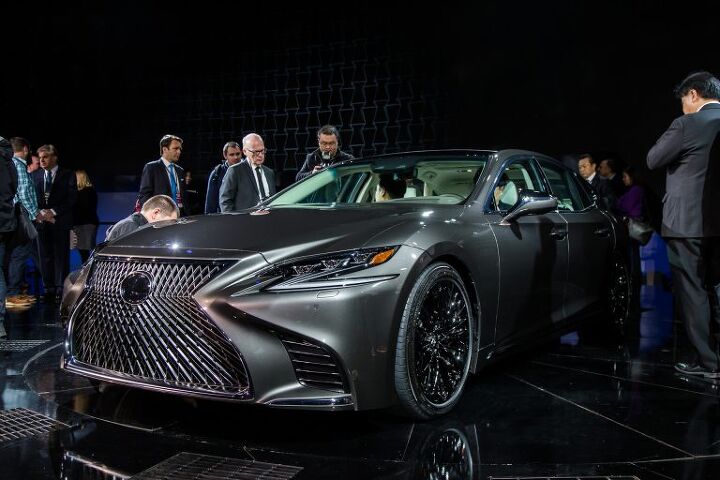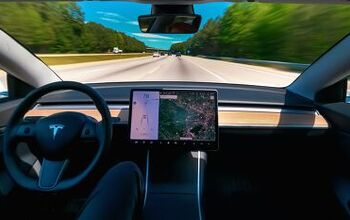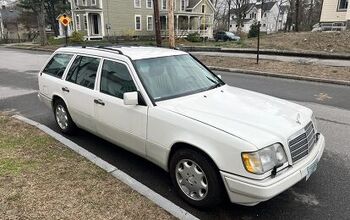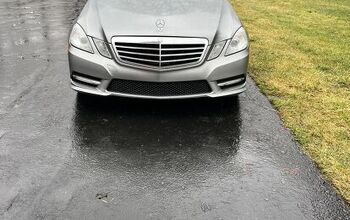Lexus Drops the LC 500's Hybrid System Into the LS 500, Adds an 'h

Lexus’ next-generation LS has already thrown design heritage out the window and kicked its traditional V8 to the curb, so why not add more totally new hardware?
For 2018, the brand’s redesigned flagship sedan will again offer a hybrid variant, but that last version is yesterday’s news. Lexus didn’t need to look far to find a replacement.
Two weeks ahead of its Geneva Motor Show debut, Lexus has dished details on the fuel-sipping version of its redesigned roadliner. Though it may not come as a surprise, the automaker has confirmed that the Multi Stage Hybrid System found in the upcoming LC 500h coupe will gain a new application in the LS.
There’s no word that any changes have been made to the system, so it looks like a direct carryover. (Much like the platform both vehicles share.)
With a 295-horsepower 3.5-liter V6 as its starting point, the system piles on the tech. Two motor-generators, each powering a front wheel, are fed by a battery pack above the rear axle, adding 44 kW of gas-free puissance that brings total system output to 354 hp. To put the power down, the LC 500h’s odd hybrid transmission joins its transplanted powertrain. The unit combines a continuously variable transmission and a four-speed planetary gearbox to mimic the feel of a smooth-shifting 10-speed automatic.
Lexus promises “a linear, direct and continuous acceleration feel,” something no luxury flagship can afford to do without.
All-electric driving can be accomplished up to speeds of 87 miles per hour, the automaker claims. That’s in line with its statements on the LC 500h. Range, with the gas burner out of commission, remains to be seen, as does the LS 500h’s fuel economy figures and acceleration. Lexus pegs the new LS’s platform mate at 4.7 seconds to 60 mph, with combined fuel economy of 30 mpg and a highway figure of 35 mpg. Expect the LS to pack on several luxurious pounds over its coupe companion, so those figures could take a minor haircut.
The automaker, which has seen LS sales fall along with that of traditional full-size luxury cars, clearly hopes this powertrain will make it a standout in its segment. In the U.S., the model will face stiff competition, especially from Cadillac’s plug-in CT6.
[Image: © 2017 Mark Stevenson/The Truth About Cars; Lexus]

More by Steph Willems
Latest Car Reviews
Read moreLatest Product Reviews
Read moreRecent Comments
- Rna65689660 For such a flat surface, why not get smoke tint, Rtint or Rvynil. Starts at $8. I used to use a company called Lamin-x, but I think they are gone. Has held up great.
- Cprescott A cheaper golf cart will not make me more inclined to screw up my life. I can go 500 plus miles on a tank of gas with my 2016 ICE car that is paid off. I get two weeks out of a tank that takes from start to finish less than 10 minutes to refill. At no point with golf cart technology as we know it can they match what my ICE vehicle can do. Hell no. Absolutely never.
- Cprescott People do silly things to their cars.
- Jeff This is a step in the right direction with the Murano gaining a 9 speed automatic. Nissan could go a little further and offer a compact pickup and offer hybrids. VoGhost--Nissan has laid out a new plan to electrify 16 of the 30 vehicles it produces by 2026, with the rest using internal combustion instead. For those of us in North America, the company says it plans to release seven new vehicles in the US and Canada, although it’s not clear how many of those will be some type of EV.Nissan says the US is getting “e-POWER and plug-in hybrid models” — each of those uses a mix of electricity and fuel for power. At the moment, the only all-electric EVs Nissan is producing are the Ariya SUV and the perhaps endangered (or maybe not) Leaf.In 2021, Nissan said it would make 23 electrified vehicles by 2030, and that 15 of those would be fully electric, rather than some form of hybrid vehicle. It’s hard to say if any of this is a step forward from that plan, because yes, 16 is bigger than 15, but Nissan doesn’t explicitly say how many of those 16 are all-battery, or indeed if any of them are. https://www.theverge.com/2024/3/25/24111963/nissan-ev-plan-2026-solid-state-batteries
- Jkross22 Sure, but it depends on the price. All EVs cost too much and I'm talking about all costs. Depreciation, lack of public/available/reliable charging, concerns about repairability (H/K). Look at the battering the Mercedes and Ford EV's are taking on depreciation. As another site mentioned in the last few days, cars aren't supposed to depreciate by 40-50% in a year or 2.



































Comments
Join the conversation
Wow! Wow! Wow! And perhaps, Why? Certainly impressive that can all be executed to Flagship Lexus levels of refinement. But it does seem, at least a bit, like Elon Musk deciding to travel from San Francisco to Johannesburg. By way of Mars.
They are recalling all of the new Lexus LS' worldwide to replace the entire front fascia. At least 212 persons (and potentially many more) have suffered heart attacks, with some fatalities resulting, when people have gone into their garages and turned on the lights.